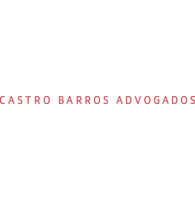
Brazil Teams 2019

| Bunge South America




Bunge South America
We have structured the legal department on three pillars: in one we have the experts in the most recurring legal matters we have in the company (tax, labour, M&A, environmental, procurement contracts and general judicial litigation); in the other pillar we have what we called the legal business partners and in the third pillar, compliance. We have legal business partners in each of the company’s businesses: agribusiness (trade of agricultural commodities); food and Ingredients (products destined to consumers, industries and the institutional market – ie wheat flour, tomato sauce, margarine, mayonnaise, shortenings etc.; and sugar and Bioenergy. They are business lawyers very much specialised in each of these businesses. In our third pillar – compliance – we have professionals dedicated to counterpart some of the tasks of Bunge’s global ethics and compliance department. They are dedicated to our internal policies and procedures, trainings about our codes of conduct and policies, data protection legislation etc. The rationale behind this pillars concept is to have the best of both worlds: we have lawyers very much specialised in the most recurrent legal matters we have in Bunge, but we also have lawyers very much specialised in each of our businesses. Their work together gives us the best of both worlds.
We believe this structure provides efficiency and greater quality because the experts have a deeper knowledge of particular matters, their work product has a greater quality, the time to provide legal advice is reduced, as well as the need to reach out for external counsel’s assistance. Second, it provides consistency as the experts can ensure that the internal clients in all of our businesses receive consistent advice. Third, it provides a stronger client relationship because the business partners work very closely to the business teams, they are perceived as part of such teams and, being exposed to the business operations and having a holistic view of it, they develop a deeper understanding of the clients’ needs and priorities and, hence, are able to provide more strategic advices. Lastly it reduces costs because the experts and business partners can tackle complex matters quickly, efficiently and strategically, and more work can be done in house.
In terms of transactions, they were plentiful, but we would like to highlight a recent agreement with BP to form a 50:50 joint venture that will create a leading bioenergy company in Brazil. This joint venture, to be called BP Bunge Bioenergia, will operate on a stand-alone basis, with a total of 11 mills located across the Southeast, North and Midwest regions of Brazil. With 32 million metric tonnes of combined crushing capacity per year, the joint venture will have the flexibility to produce a mix of ethanol and sugar. It will also generate renewable electricity – fuelled by waste biomass from the sugar cane – through its cogeneration facilities to power all its sites and sell surplus electricity to the Brazilian power grid. This partnership with BP represents a major portfolio optimisation milestone for Bunge which allows us to reduce our current exposure to sugar milling, strengthen our balance sheet and focus on our core businesses. The closing of this transaction is awaiting the customary regulatory approvals.
We believe the legal department must be able to provide a competitive advantage to the company by acting preventively (preventive lawyering) to hinder contingencies and legal problems and by providing innovative legal ideas and solutions to the existing problems.
We use systems to manage judicial and administrative cases, contracts, IP and internal and external costs. From those systems we are able to extract the necessary information to feed what we call our “Legal Dashboard”. It is a BI platform available not only internally at the legal department, but also to the management, where we treat and consolidate the necessary data to allow us to visualise the metrics that we consider relevant for the company’s strategic decision making process. After all, If you can’t measure it, you can’t improve it. That also helps us to demonstrate how and how much value we add.
Bunge has a global policy on diversity and inclusion. We are committed to increasing diversity within our operations and supporting the existing diverse workforce. Policies and practices are also reviewed to ensure that there is no harm to diversity. The comments we receive on our ethics and compliance hotline and website are also reviewed to evaluate employees’ sense of inclusion. Bunge also has employee-developed groups such as Women of Bunge, Proud & Allied, Multicultural Business Leaders, and African-American Connection, to create awareness initiatives that support the company’s mission for a diverse and inclusive work environment. By the way, most of the professionals in our legal department in South America are women, including in its leadership group. Specifically in Brazil, we have an area focused on diversity since 2011, where five pillars are worked on: disability, gender, ethnicity, belief and age. Through our pillars of diversity, we constantly seek to have a representation of our society within Bunge. We are socially responsible and we want the communities to be represented. Through the Community of Practice, which is a group to discuss topics related to diversity and inclusion and best practices, we promote actions to strengthen our inclusive culture.